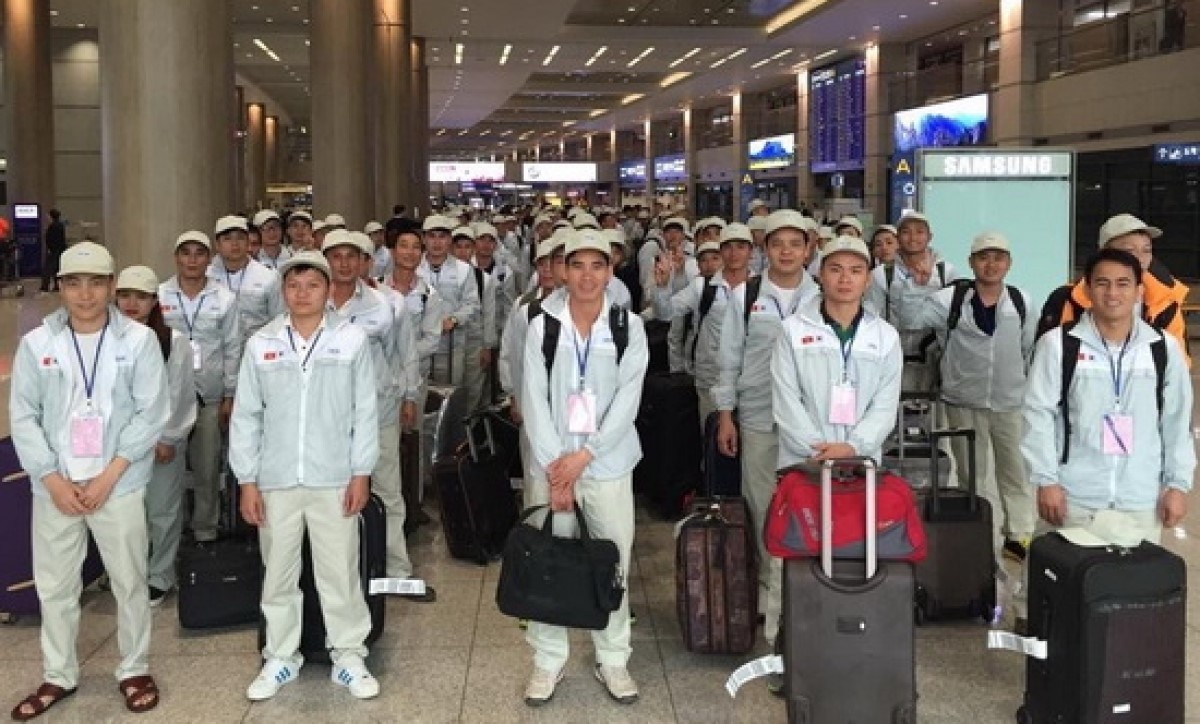
Vietnamese laborers not to sent to work abroad at all costs
Latest
 |
| According to Viet Nam's policy, no Vietnamese worker is sent to work abroad at all cost. (Photo: VOV) |
The revised Law on Vietnamese workers going abroad under contracts, referred to as Law No. 69, officially came into force on January 1. The law amendment aims to deal with shortcomings in practice and new problems which may arise amid the impact of the 4th Industrial Revolution.
Law No. 69 indicates the country’s consistent policy of not sending workers abroad at all costs, whilst ensuring the rights of laborers to work abroad legally. They are therefore free to choose appropriate forms of overseas jobs and are not forced to do anything against their will.
According to the Government's estimates, each year the amount of remittances sent by Vietnamese workers stands at around US$2.5 billion to US$3 billion. When going to work abroad, employees are put in conditions which help to improve their professional skills, acquire knowledge, learn foreign languages, and study advanced working styles, thereby becoming important human resources for the national process of industrialization and modernization.
The country has so far sent approximately 580,000 laborers abroad, including 230,000 to Taiwan (China), 250,000 to Japan, 50,000 to the Republic of Korea, and the rest to other markets such as the Middle East, Africa, Southeast Asia, and Europe.
Vietnamese guest workers are mainly involved in the fields of manufacturing, such as mechanics, textiles, leather and footwear, and electronic assembly, as well as construction, agriculture, fisheries, and other services such as taking care of the elderly, the sick, and domestic help.
Employers view Vietnamese workers as skillful, hardworking, able to grasp jobs quickly, eager to learn, creative, and dynamic, therefore enabling them to guarantee their working quality.
The urgent task of competent Vietnamese agencies at present is to finalize legal regulations and provide detailed guidance on Law No. 69 relating to Vietnamese workers going abroad under contracts, with a specific focus on exploiting the market with good working conditions, safety, and high income for employees.
Local agencies must also co-ordinate with their counterparts in host countries to quickly organize flights to bring Vietnamese laborers abroad and return workers whose contracts have since expired.
Furthermore, it remains imperative to step up the dissemination of policies, laws, and information regarding laborers going to work overseas, thereby preventing and limiting fraud and law violations in this regard.
On the other hand, it can be viewed as essential to improve the overall quality and efficiency of the recruitment and training of workers in terms of foreign languages, skills, and discipline, as well as to prevent employees from being abused when working abroad.





















